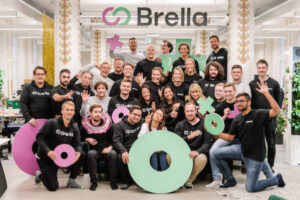The people you hire at the early stages should have a few key qualities — flexibility, passion and trustworthiness
Choosing the right people at the very start will help create a steady foundation for your startup to grow
A startup’s first few employees should be people who have bought into the founder’s vision, have the utmost integrity and are ready to take on diverse responsibilities as the startup expands

When your startup passes beyond the initial minimum viable product (MVP) phase, you want to make sure you’re not just thinking about the numbers — be it customers, users, or funds raised. You need to have the right mindset for your current phase of development. And for that, you need to make sure the people you’re working with are on the same page.
The people you hire at the early stages should have a few key qualities — flexibility, passion and trustworthiness. Choosing the right people at the very start will help create a steady foundation for your startup to grow.
The second session of Huddle’s Young Founders Forum saw GoComet’s Chitransh Sahai, Evenflow’s Utsav Agarwal and Hubhopper’s Gautam Raj Anand talk about building the founding team, what team building looks like pre and post the first round of fundraising, and what one means by sustainable scaling.
Here are the three takeaways from the session:
Hire For Skill Or Hire For Passion?
First-time founders often overthink when it comes to building their first team. Should they be looking for skill or passion? Time spent debating this question often leads to lost time and productivity.
A startup’s first few employees should be people who have bought into the founder’s vision, have the utmost integrity and are ready to take on diverse responsibilities as the startup expands. Early-stage ventures should essentially be looking for people who are committed to being there and solving problems.
Agrawal shared that as a founder one has to spend a lot of their time building the initial leadership team. The smartest talent out there isn’t actively looking to move out of their current gig and founders need to do a reverse interview to convince them to join in their vision.
Agrawal shared, “A potential hire has to be ready for all the arguments and discontent, and if they have the curiosity and intent to learn and grow, they can be one of the most valuable assets despite being an outsider.”
When it comes to early hires mistakes, Sahai shed light on his experience of hiring for skill and later realising that culture fit should be the primary method of evaluating an employee. He recollects that the ones who have stuck with GoComet for the longest time are the ones with the ‘strongest character’ and not ‘strongest resume’.
He is of the firm belief that such people are the backbone of the company and are always amenable, approachable, and adaptable to changes. The GoComet’s cofounder further added that with scarce resources in the early days, the first few hires should be generalists as they can contribute across multiple verticals.
How Much Scale Is Enough Scale?
When it comes to funding, a startup’s scale has the power to provide more validation to investors than an MVP or a trustworthy team ever could. A proven model and demonstrated revenue growth with the right operational metrics to back it up will help turn your startup into an investor-friendly venture.
Sahai added that the quantum of scale is majorly defined by the market the startup is operating in. While sustainable growth is suited for more traditional ventures, in crowded markets such as social media, modest growth is not an option. A monopolistic market though allows new ventures to approach the market and grow with time. In such cases, the network effect overpowers everything and provides for easier GTM execution.
Metric Maintenance In Scale
The quest for growth is at the forefront of all businesses. Yet many businesses gauge their growth on metrics that are not aligned with company value maximisation. Early-stage companies often focus on revenue as their main KPI. This shows the culture of value capture over value creation. Focusing on additional KPIs, such as active users can prove to be a more insightful metric because it puts the business model at the centre.
Founders must understand that investors focus on a range of metrics to identify truly scalable ventures. Putting ARR as a single north star metric and forgoing the growth or maintenance of other foundational metrics such as NPS, retention, churn, and cash flows is unacceptable.
Scaling a venture involves being comfortable with non-linear growth. Founders must redefine what scale means to them based on their unique business context. Understanding why scaling up is important to their business will help them to contextualise better and build more effective and efficient processes to achieve that growth. One must forgo the temptation to scale fast without getting the basics right.








